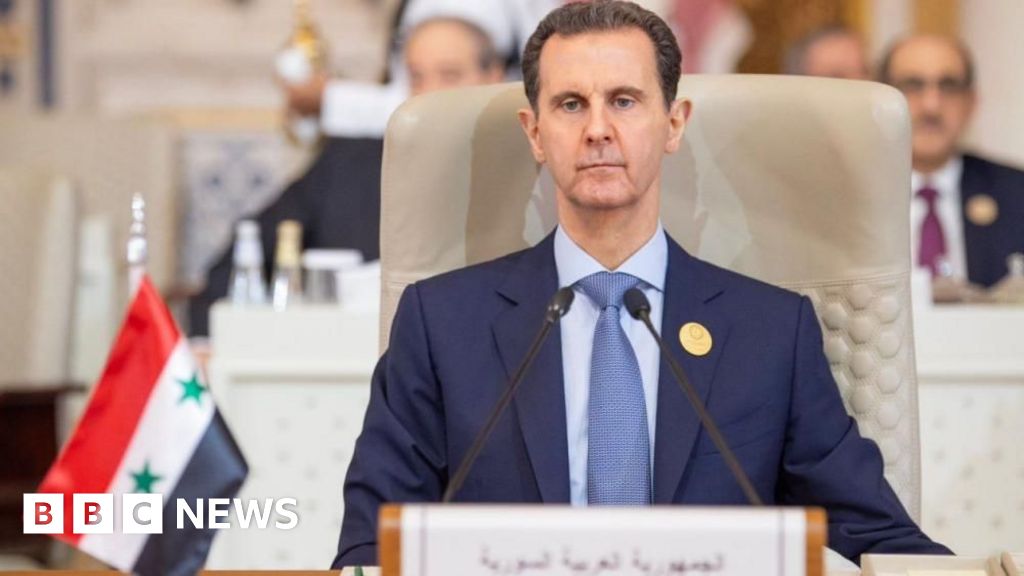France’s top appeals court has ruled that an arrest warrant for Syrian President Bashar al-Assad issued for alleged complicity in crimes and humanity and war crimes is valid, lawyers say.
Last year, investigative judges sought the arrest of Mr Assad and three others over a deadly chemical weapons attack in Syria in 2013, in which he denied any involvement.
Anti-terrorism prosecutors challenged the French warrant’s validity, saying he had immunity as a sitting foreign head of state.
The lawyers for the plaintiffs in the initial complaint hailed as “historic” the Paris Court of Appeal’s decision rejecting that argument.
“It’s the first time a national court has recognised that a sitting head of state does not have total personal immunity,” Clemence Bectarte, Jeanne Sulzer and Clemence said.
France is among the countries that allows the filing of crimes-against-humanity cases in its courts.
Syria has been devastated by a civil war that erupted after Mr Assad’s government responded with deadly force to peaceful pro-democracy protests in 2011.
The conflict has left half a million people dead and caused half the population to flee their homes, including almost six million refugees abroad.
In August 2013, there was a chemical weapons attack in the then-opposition-held Ghouta region on the outskirts of Damascus.
UN experts confirmed that rockets containing the nerve agent sarin were used, but they were not asked to ascribe any blame.
Sarin, like other nerve agents, interferes with an enzyme that stops muscles from contracting. When the enzyme is stopped or is not working correctly, muscles are constantly being stimulated. If muscles are constantly contracting people may not be able to breathe.
Western powers said only Syrian government forces could have carried out the attacks. Mr Assad denied the allegation and blamed rebel fighters.
The president did subsequently ratify the Chemical Weapons Convention and agree to destroy Syria’s declared chemical arsenal. But investigators from the UN and the Organisation for the Prohibition of Chemical Weapons (OPCW) have blamed government forces for a number of deadly chemical attacks which have taken place since then.
Three years ago, survivors and the Syrian Centre for Media and Freedom of Expression (SMC) filed a complaint to French investigative judges in Paris over the 2013 attack.
They alleged crimes against humanity and war crimes were committed and that a French court could therefore prosecute individuals under the legal concept of universal jurisdiction.
Last November, the judges agreed and issued arrest warrants for Mr Assad; his brother Maher, who leads the Syrian army’s fourth armoured division; General Ghassan Abbas, director of the Scientific Studies and Research Centre (SSRC); and General Bassam al-Hassan, a presidential adviser and liaison officer with the SSRC.
The appeal by anti-terrorism prosecutors did not question the evidence but sought to annul the warrant for the president. They argued that immunity for sitting foreign heads of state should only be lifted for international tribunals like the International Criminal Court (ICC).
On Wednesday, the Paris Court of Appeal said it had confirmed the validity of the warrant.
“Prohibiting the use of chemical weapons is part of customary international law as a mandatory rule, and the international crimes that the judges are looking at cannot be considered as being part of the official duties of a head of state. They can thus be separated from the sovereignty naturally attached to these duties,” a statement said.
Although Mr Assad is unlikely to face trial in France, SMC director Mazen Darwish said it marked a “a crucial step towards justice for the victims of chemical attacks”.
“It sends a clear message that impunity for serious crimes will not be tolerated, and the era when immunity could serve as a shield for impunity has come to an end,” he added.
Syria is not a party to the Rome Statute, the treaty that established the ICC, and does not recognise its jurisdiction.

